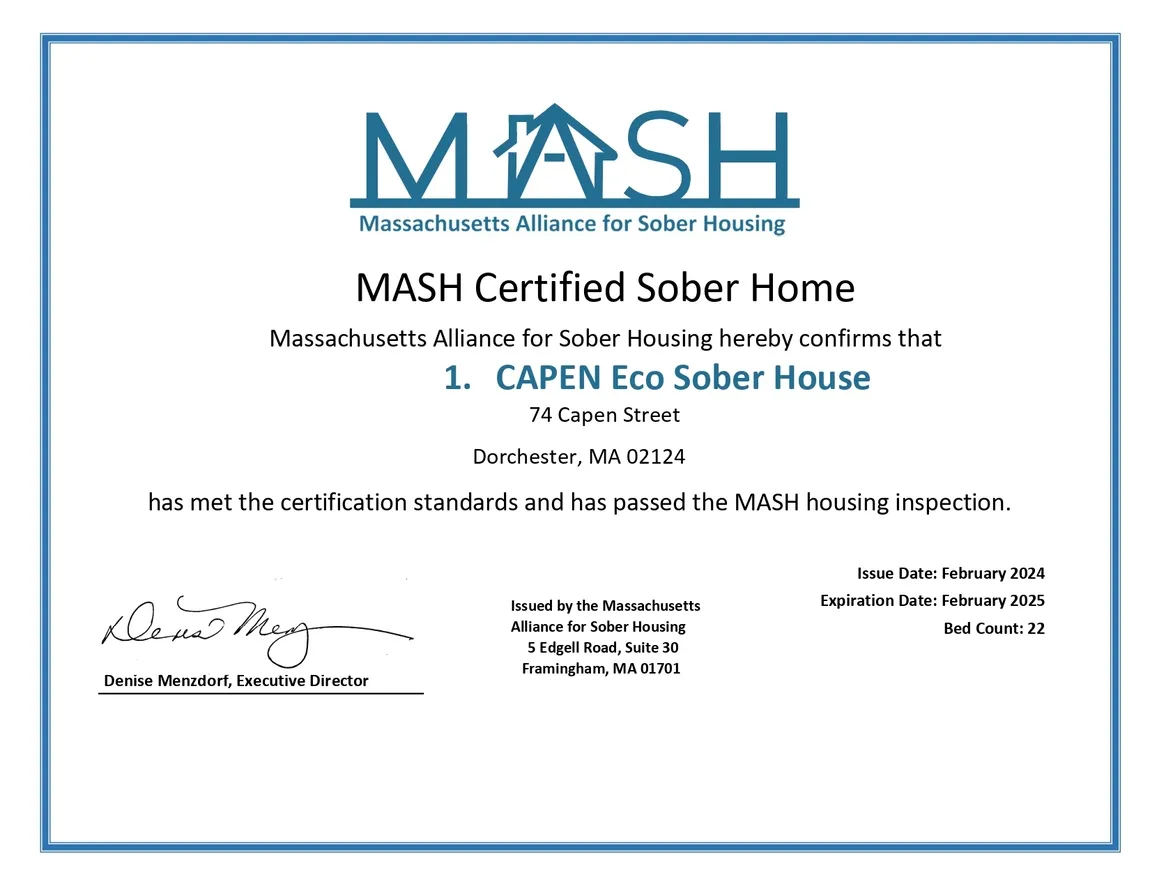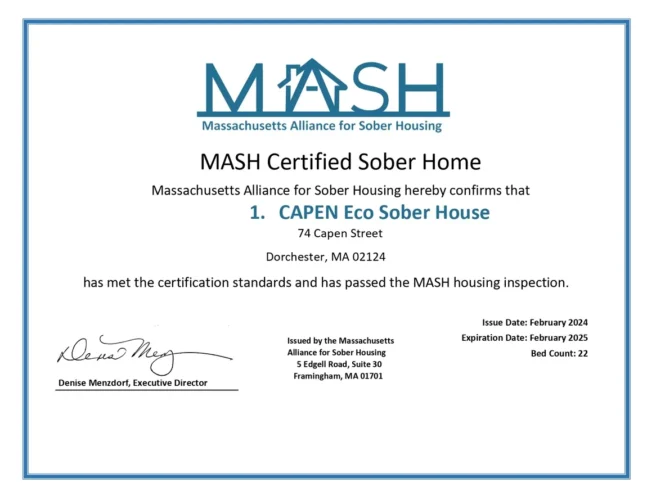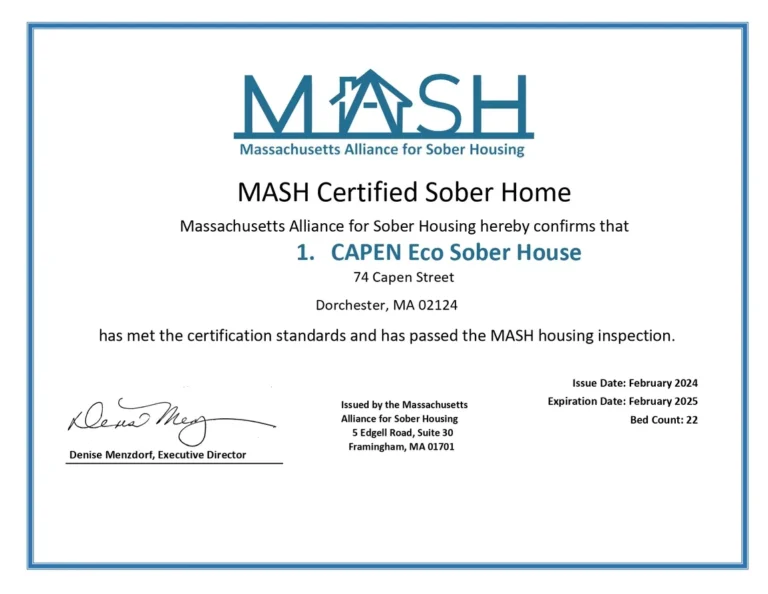
To see if there’s a Family Support Navigator near you, click here for a county by county directory. Recovery from addiction brings about https://ecosoberhouse.com/ significant changes not only for the individual but for the entire family dynamic. As one family member strives to maintain their sobriety, others must adjust to new roles, responsibilities, and ways of interacting. This adjustment period can be a time of growth, as families learn to navigate the complexities of post-recovery life together.

Try Family Therapy
Family members may experience various emotions, including anger, guilt, or frustration. Engaging in self-care practices and seeking support through individual counseling or family support groups can help manage personal emotional challenges and maintain emotional well-being. Family Member Self-Care strategies are crucial in this context, and resources from Bergman et al. and Eddie et al. can provide additional support. In addition to setting limits, families can maintain an open line of communication to discuss these boundaries in a compassionate manner. This might include regular family meetings where everyone can express their feelings and perspectives on the recovery process.
How to Find Family Counseling Resources
Families can benefit from sharing responsibilities and seeking professional support to avoid burnout. Family support in addiction rehabilitation emphasizes how family members may be a source of strength and encouragement for those attempting to overcome addiction. Anthony Nave is an Internationally Certified Advanced Alcohol and Drug Counselor and Licensed Clinical Social Worker, who holds master’s degrees in Educational Psychology and Clinical Social Work.
The Family’s Role in Addiction and Recovery
- Your involvement as a family member can be the cornerstone of successful recovery, fostering resilience and hope for your loved one battling addiction.
- Self-care can involve seeking individual therapy, attending support groups for families of addicts, or simply taking time to recharge.
- Consistent emotional encouragement builds self-esteem and confidence, essential elements for achieving long-term sobriety 3.
The family’s influence in sustaining recovery and fostering long-term sobriety cannot be overstated. This unit, often the closest and most impactful support network for an individual, holds Sobriety immense power in shaping the recovery environment. By fostering a positive, encouraging atmosphere, families can significantly enhance the individual’s ability to navigate the complexities of recovery and reduce the risk of relapse. Furthermore, families that educate themselves about addiction and recovery processes are better equipped to provide the specific type of support their loved one needs. Recognizing the power they wield, families can adopt a proactive stance, engage in open communication, set healthy boundaries, and participate in therapy or support groups. This active involvement not only aids the individual’s recovery journey but also contributes to the family’s growth and healing, strengthening the familial bond and creating a resilient support system that endures challenges.

- Implementing these strategies not only aids in the recovery process but also strengthens family bonds, paving the way for a healthier future for everyone involved.
- Family members may become caregivers, constantly managing the addict’s behavior or even enabling destructive habits out of love or fear.
- Family support importance needs to be acknowledged and prioritized when an individual is in addiction and seeking recovery.
- This shows that family support is an active and essential part of rehabilitation, not just a passive role.
- At Mountainside, he oversees clinical programming for the full continuum of care and incorporates interpersonal neurobiology and a trauma-responsive framework into treatment and supervision.
- For members of the household, the experience of living with someone battling addiction can create frustration, mistrust, and even blame.
This often involves self-reflection and recognizing the negative impact of substance misuse on one’s life. This component recognizes that addiction affects the person with the substance use illness and their family members. It emphasizes the significance of resources and support groups such as Al-Anon and Nar-Anon to assist family members in dealing with their difficulties. As recovery moves forward, hidden and latent issues that fostered drinking or were created by the trauma of the drinking environment may need individual attention. Attempts may be made to help the person gain insight into why life has become unstable for so many in the family unit. However, in the final analysis, it may be up to them to begin the process of recovery.

This article will explore how family can play an important role in health care matters and your addiction recovery. Children “graduate” with a better understanding of addiction as well as a better ability to identify and express their feelings. Kids also begin the process of creating self-care strategies for themselves and identifying safe people who can provide support. Counseling staff contact each family to provide continuing care recommendations and encouragement to continue seeking services for their child and the collective health of the family. Your journey towards sobriety is one that requires immense courage family support in addiction recovery and determination. Involving your family in the addiction treatment process can provide a strong support system, fostering an environment conducive to lasting recovery.

The Impact of Family Support on Recovery

During the past several decades, the empirical literature has expanded significantly to develop a critical foundation of knowledge and advance the implementation of family and couples-based approaches to AUD treatment. This section reviews promising areas for future research to further advance the state of the science in this area and to inform clinical best practices to optimize the AUD recovery process by incorporating family members. Efficacious treatments drawn from cognitive behavioral and family systems theories have been developed both for family members alone and for family members together with the individual with AUD. Thus, the research literature to date does not provide guidance to clinicians about selecting a treatment from among those with empirical support. If someone you love is struggling with addiction, you don’t have to navigate this journey alone.